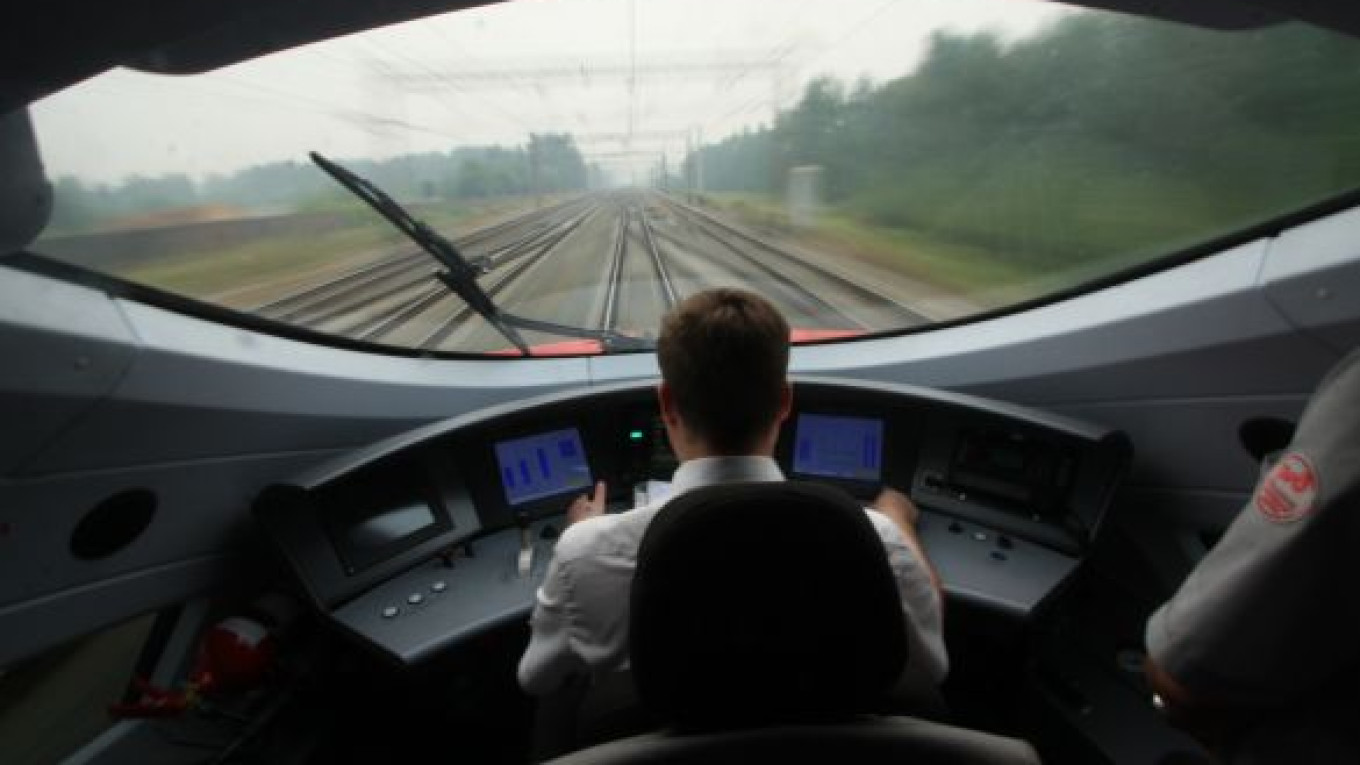Siemens is more interested in supporting projects on the new Moscow to St. Petersburg high-speed rail link than on the actual construction, the company’s local director has said.
Construction of the new rail line, scheduled for completion in 2017, is likely to be dominated by Russian companies, Siemens Russia and CIS chief Dietrich Meller said in an interview with Interfax on Tuesday.
“I understand that a large part of construction will likely be done by Russian firms,” Meller said, though he confirmed that the German company would be interested in supplying “signaling equipment, automation and electrification of everything that is not directly related to the construction of the railway route.”
The company may also be interested in supplying trains for the route.
Siemens’ Sapsan trains currently operate on the regular Moscow to St. Petersburg railway line, where they are limited to speeds of 250 kilometers an hour, though Meller said they can reach “350 kilometers per hour or higher” on purpose-built lines.
The journey by Sapsan between the two cities currently takes about 4 1/2 hours. The new route is set to slash journey time to 2 1/2 hours.
High-Speed Rail Lines, the Russian Railways subsidiary in charge of the project, is expected to announce a tender for the 627.5 billion ruble ($21.6 billion) construction project by the end of August.
Bidders are expected to include consortiums from Germany, France, South Korea, China, Spain and Italy.
The new link is planned as part of a network of high-speed lines planned to be built by the time Russia hosts the football World Cup in 2018.
Other high-speed lines are planned to link Moscow to Nizhny Novgorod, Kazan and Yekaterinburg.
n Three historic buildings associated with the Moscow circle rail line have been demolished, activists from the Arkhnadzor architectural preservation group have claimed.
The missing buildings include a barracks on Shosse Entuziastov in Lefortovo, the Andronovka house on Andronovskoye Shosse and part of a locomotive depot on Mikhailovskaya Ulitsa. The barracks were demolished during the new year holidays. A new building of similar appearance was constructed next to it.
Russian Railways is planning to expand the circular railway, which currently only carries freight, to provide passenger services.
Responding to written enquiries from the group, prosecutors said a project to move the buildings had been agreed in 2009, but no approving documents were issued.
The Moscow department for cultural heritage has sent a letter to the police asking them to investigate the case.
A Message from The Moscow Times:
Dear readers,
We are facing unprecedented challenges. Russia's Prosecutor General's Office has designated The Moscow Times as an "undesirable" organization, criminalizing our work and putting our staff at risk of prosecution. This follows our earlier unjust labeling as a "foreign agent."
These actions are direct attempts to silence independent journalism in Russia. The authorities claim our work "discredits the decisions of the Russian leadership." We see things differently: we strive to provide accurate, unbiased reporting on Russia.
We, the journalists of The Moscow Times, refuse to be silenced. But to continue our work, we need your help.
Your support, no matter how small, makes a world of difference. If you can, please support us monthly starting from just $2. It's quick to set up, and every contribution makes a significant impact.
By supporting The Moscow Times, you're defending open, independent journalism in the face of repression. Thank you for standing with us.
Remind me later.


